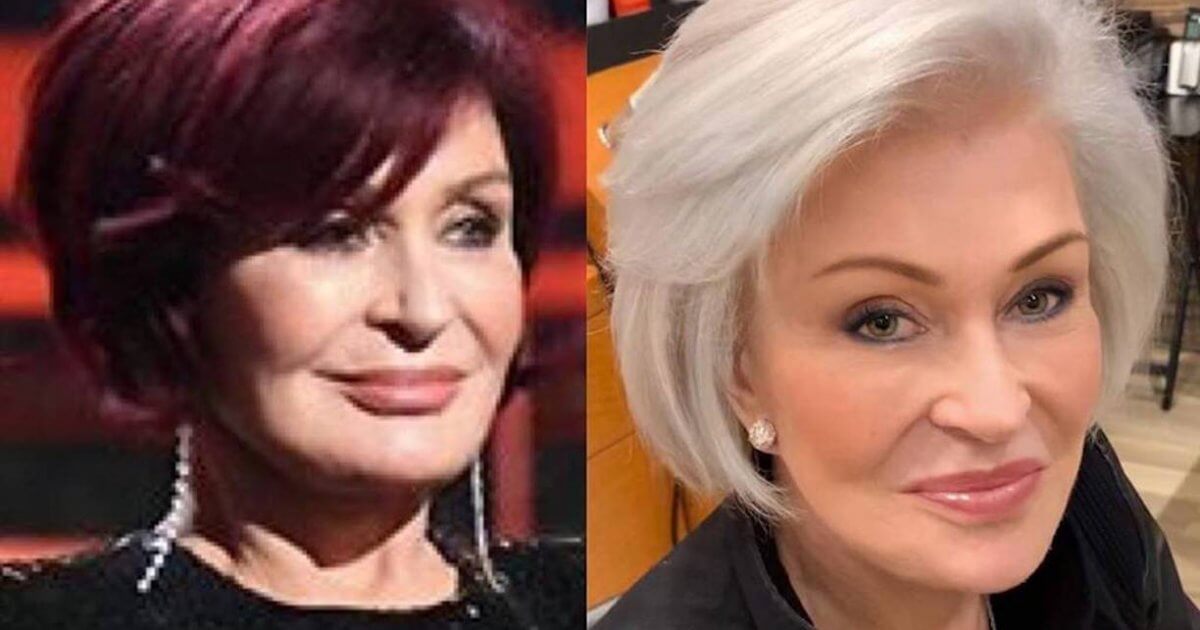Sharon Osbourne, 67, a colon-cancer survivor and co-host of “The Talk,” has a way of making her point: As her husband Ozzy, 71, revealed this week in a Good Morning Britain interview, “she cut every sleeve off every coat I own,” after she learned of his 2016 affair. The betrayal, Sharon added “left her broken in every sense.” But the couple has stuck together for 37 years, in sickness and in health. Most recently, Ozzy announced in January that he’s been diagnosed with a rare form of Parkinson’s disease.
Colon Cancer Diagnosis: “Shock and Panic”
In 2002, Sharon Osbourne, then 49, was diagnosed with colon cancer. For three years, she’d put off seeing a doctor and went at Ozzy’s urging, she told People. "You think nothing will ever happen to you. You're invincible," she said. "Then after you get over the shock and panic, you realize how lucky you are to be alive."
Read MoreInspired by the care she received at Cedars-Sinai Medical Center in L.A., Osbourne joined forces with surgeon Dr. Edward Phillips to support colon cancer patients in the community. The Sharon Osbourne Colon Cancer Program provides at-home help, childcare, transportation, and access to support groups and patient care services offered within Cedars-Sinai. The program also underwrites colon cancer education for healthcare providers with a long-term goal of expanding screening and educational opportunities.
Although Osbourne’s colon cancer treatment was successful, in 2012 she opted for a preventative double mastectomy when testing revealed she faced a high risk of developing the disease.
Going Natural: Osbourne’s New Look
After 18 years of weekly haircolor, Osbourne recently traded in her red for an easy-care platinum blonde (as her stylist calls it). Fans approve: “Love love love the hair! It makes you look younger, you skin looks brighter, you look amazing!” one commented on her Instagram, with another adding, “LOVE the hair…giving me inspiration to stop the every 3 week dye job that I am sooooo tired of doing!”
Heather Yeo, a surgical oncologist at Weill Cornell Medicine and NewYork-Presbyterian, explains the myth and facts of colon cancer risks and screening.
Why Are Young(er) People Getting Colon Cancer?
The American Cancer Society guidelines for colon cancer recommend that average-risk adults begin getting colonoscopies at age 45. For those who are given clear scans, they should go back for additional colonoscopies once every 10 years. With regular screening, colon cancer is preventable.
However, even with these nation-wide screening recommendations, the rate at which younger adults are being diagnosed with colon cancer has been going up. In a previous interview, Dr. Heather Yeo, a colorectal surgeon at Weill Cornell, said that the reason colon cancer is becoming more common among people under 50 is hard to pin down, but these cancers tend to have some unique characteristics.

Osbourne has lent her famous face to support colon cancer awareness through the American Cancer Society.
"We don't know exactly why it's increasing," Dr. Yeo said. "It's a different type of cancer. The colon cancers that are in the younger age group are more likely to be on the left side, they're more likely to be rectal cancers, they are more likely to be kind of aggressive tumor types."
Dr. Yeo also explained that any number of lifestyle factors could be contributing to colon cancer developing in younger adults.
"It may be something environmental. Our group actually tried to look at some of the kind of common risk factors," she explained. "We looked at maps of the United States. We looked at smoking rates, and we looked at obesity. If you compare that to colon cancer, you'll see, yes, where there's obesity in the United States, there's higher colon cancer. However, it didn't quite match with younger age groups. So there are some different risk factors for these early colon cancers."
Know the Symptoms
For people under the age of 45 the need to undergo colon cancer screening varies. Some people are considered high-risk and may need to get colonoscopies earlier and more frequently. Another important aspect in the fight against this disease is symptoms. If you're experiencing any of the following symptoms, a conversation with your doctor about screening may be in order:
- Change in bowel habits
- Change in the color of stool
- Abdominal pain
- Unintended weight loss
- Anemia
What About At-Home Colon Cancer Test Kits?
As colon cancer rates continue to mysteriously increase among young people, the U.S. Food and Drug Administration (FDA) has expanded its approval for the at-home colorectal cancer screening kit, Cologuard. The test, which was previously approved for people over 50 years old, is now available for people over 45, too.
RELATED: Replacing a Colonoscopy With At-Home Tests Sounds Good, But Doesn't Necessarily Work
To complete the test, you send the stool sample back to the company, which tests for cancerous cells in the stool. But experts, including Dr. Heather Yeo, a colorectal surgeon at NewYork-Presbyterian/Weill Cornell Medical Center, tell SurvivorNet that full colonoscopies, not at-home screening tests, are still considered the gold standard of colon cancer screening.
RELATED VIDEO: Looking for Polyps During Colonoscopy
As of last fall, more than 1.3 million people had used the Cologuard test, according to a STAT News article by Dr. Naresh Gunaratnam, a gastroenterologist and research director at Huron Gastroenterology in Ypsilanti, Michigan. "Cologuard tests stool for tiny amounts of blood as well as for certain abnormal sections of DNA in cells shed by cancer or polyps that end up in the stool," Dr. Gunaratnam writes. Cologuard can definitely lead to life-saving early detection, but when it comes to catching cancer and pre-cancerous colon polyps which can become cancer down the line colonoscopies are still more effective.
Learn more about SurvivorNet's rigorous medical review process.


